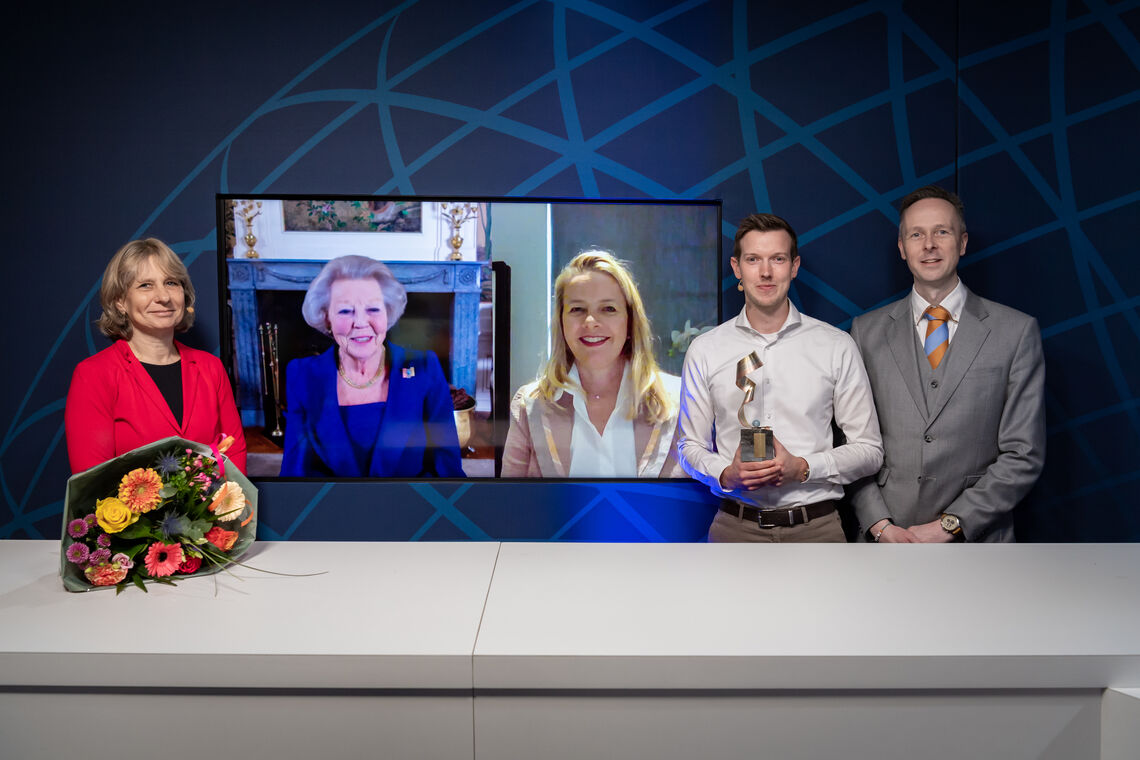Alumnus Marijn van Rooij wint Prins Friso Ingenieursprijs 2022
Marijn van Rooij, alumnus Industrial Engineering and Management, heeft de Prins Friso Ingenieursprijs 2022 gewonnen. Van Rooij is medeoprichter en CTO van Ocean Grazer bv, dat een technologie ontwikkelde om energie op te slaan op de zeebodem. De prijs is op 16 maart uitgereikt door het Koninklijk Instituut van Ingenieurs (KIVI). Daarbij waren via een online verbinding ook prinses Beatrix en prinses Mabel aanwezig . De jury van KIVI roemde de grote bijdrage van Van Rooij aan de oplossing van een belangrijk en maatschappelijk relevant probleem.
Marijn heeft Industrial Engineering and Management gestudeerd aan de Faculty of Science and Engineering van de Rijksuniversiteit Groningen. Hij is medeoprichter van en CTO bij Ocean Grazer bv, waar hij inmiddels al zo’n vijf jaar onderzoek doet. De Ocean Grazer oogst hernieuwbare energie uit zeegolven en integreert dit met een modulaire oplossing voor grootschalige opslag van elektriciteit die wordt opgewekt door windturbines en drijvende zonneparken op zee.
De prestigieuze Prins Friso Ingenieursprijs werd dit jaar voor de achtste keer uitgereikt. Het Koninklijk Instituut Van Ingenieurs (KIVI) wil met de prijs excellente ingenieurs en hun werk zichtbaar maken. Naast de prijs voor Marijn van Rooij ging de Publieksprijs naar Nikéh Booister van Sweco en de studentenprijs naar het team MSP Maastricht.

Meer nieuws
-
17 februari 2026
De lange zoektocht naar nieuwe fysica
-
10 februari 2026
Waarom slechts een klein aantal planeten geschikt is voor leven
